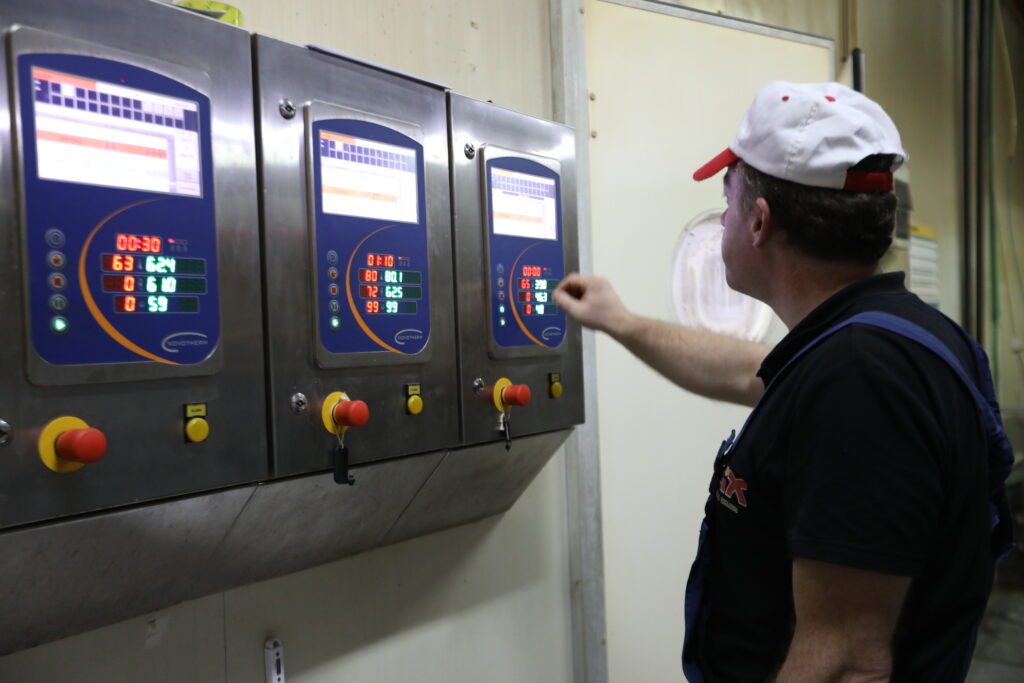UNDP Albania
Driving Business in Albania towards the Sustainable Development Goals
January 30, 2023

In Albania, UNDP has partnered with sister UN agencies, the Food and Agriculture Organization (FAO), the International Labor Organization (ILO), and the United Nations Industrial Development Organization (UNIDO), to implement a UN joint programme funded by the Swedish Development Agency called: Business Partnerships and Solutions for Sustainable Development Goals.
Businesses are the economic engine of societies. They have the resources and influence to drive sustainable development initiatives. Businesses play a key role in promoting the achievement of the UN Sustainable Development Goals (SDGs). Often, businesses ask, "How?" Here is how:
Businesses are important catalysts for change as they have an influence on the environment and social fabric of communities. Businesses use their products, services, and operations to create positive social and environmental impacts. Through their supply chains, business activities, and investments, companies have an impact on the local communities.
The United Nations (UN) agencies are engaging businesses in the implementation of the SDGs in a myriad of ways.
In Albania, UNDP has partnered with sister UN agencies, the Food and Agriculture Organization (FAO), the International Labor Organization (ILO), and the United Nations Industrial Development Organization (UNIDO), to implement a UN joint programme funded by the Swedish Development Agency called: Business Partnerships and Solutions for Sustainable Development Goals.
The Programme works to empower private sector entities in Albania to incorporate the Sustainable Development Goals into their operational models.
The project targets two primary business sectors – agro-processing and Textile, Clothing, Leather and Footwear (TCLF) – that have been selected based on their considerable impact on the nation's economic growth and employment. Project interventions will contribute to economic development and job creation by aiding in the growth and improvement of these two sectors.
And the support is already showing results:
The AN & GES textile factory was one of the beneficiaries of the ILO Sustaining Competitive and Responsible Enterprises (SCORE) training, piloted under the programme. After the successful implementation of SCORE, which combines practical classroom training with in-factory consulting, the factory's textile product waste was reduced by 3 percent due to better use of the raw material.
Also, a 4 percent decline in absenteeism was noted after the introduction of daily meetings. Good housekeeping, removal of unwanted materials as well as the application of the 5S improvement in the storage of the enterprises resulted in the reduction of searching time from approximately 8 minutes to about 2 minutes each time.
The programme also works to boost private sector actors' knowledge of the SDGs and to help companies become more sustainable by improving their working conditions and processes.
The programme aims to elevate the standards of small and medium-sized enterprises (SMEs) in Albania as the country draws closer to joining the European Union and to allow them to become part of the international supply chain. Moreover, this project plans to assist SMEs in conducting sustainable practices that are in line with the SDGs.
FIX PRO sh.p.k., a company operating in the field of meat processing, is committed to becoming energetically independent, while decreasing its CO2 emissions. The business has recently installed solar panels, which are going to be an asset in the future due to the increasing prices of electricity and fuel. In addition, it plans to invest in electric cars for delivery services in partnership with an Italian company. Over time, the business also gradually improved its packaging and reduced its environmental impact. For instance, the company is active in cardboard recycling and has installed a water treatment plant. Active since 2015, the system preserves the soil and the work of the farmers nearby, as the factory is in an industrial area close to an open-field production.
The programme will help Albania bring Agenda 2030 to fruition by creating strategies and analyses, connecting with Swedish companies and showing the business world, such as chambers of commerce, business associations, and other organizations, about the SDGs.
Monica Merino, UNDP Resident Representative said, "We are happy to have joined forces with the Swedish government to encourage businesses to adopt sustainable business practices and utilize sustainable strategies to help achieve the SDGs. Companies that invest in the attainment of the Sustainable Development Goals help to create an environment that will be beneficial for business success. This alliance will generate a more environmentally friendly future for Albania and the world”.
Investment by the private sector has the potential to close the gap between the SDGs' declared commitments and their implementation.

 Locations
Locations



